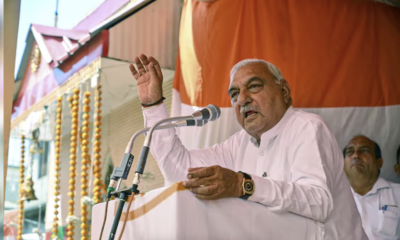Union Home Minister Amit Shah’s statement in the Rajya Sabha on July 31 has sparked a heated debate and a political storm. Shah accused the Kerala government of ignoring early warning system alerts and warnings of heavy rain issued by the Centre before the devastating landslides in Wayanad, which claimed the lives of at least 300 people. The Congress party, led by its Rajya Sabha MP and chief whip Jairam Ramesh, has responded by submitting a privilege notice against Shah, alleging that he misled the House with inaccurate information.
The Controversial Statement
In his speech, Shah claimed that the Union government had warned the Kerala government as early as July 23 about the impending heavy rain and potential landslides. He detailed how the National Disaster Response Force (NDRF) teams were dispatched to Kerala under his approval, emphasizing that the Centre had done its part in alerting and preparing for the disaster.
“On July 23, seven days before [the landslides happened], we issued a warning. On July 26, we warned that there would be heavy rains of more than 20 cm, a possibility of landslides, and that mud could rush and people could be trapped and die,” Shah stated. He questioned the Kerala government’s response, suggesting that lives could have been saved if the warnings had been heeded and people had been evacuated from vulnerable areas.
The Congress’s Rebuttal
The Congress, supported by Kerala’s Chief Minister Pinarayi Vijayan and several CPI(M) MPs, has challenged Shah’s claims. In his letter to Rajya Sabha Chairman Jagdeep Dhankhar, Jairam Ramesh accused Shah of presenting “inconsistent” information and misleading the House. Ramesh cited media fact-checks and reports, including one from The Hindu, which disputed Shah’s timeline and the efficacy of the warnings provided.
“The home minister’s claims on early warning systems and their non-utilization by the Kerala government, in spite of alerts issued by the Centre, have been extensively fact-checked in the media and proven to be false,” Ramesh wrote. He argued that Shah’s statements constituted a breach of privilege and contempt of the House, warranting privilege proceedings against him.
Several media outlets conducted fact-checks following Shah’s statements. Reports indicated discrepancies in the timeline of warnings and the actual response times. The Hindu’s investigation found that while warnings were indeed issued, the details and timing did not align with Shah’s assertions.
Kerala CM Vijayan also countered Shah’s claims, presenting a detailed account of the alerts received and the state’s response. He maintained that the state had taken necessary precautions and that the Centre’s alerts were not as timely or clear as Shah suggested. Vijayan’s rebuttal painted a picture of a state government working diligently amidst challenging circumstances, contrary to the negligence implied by Shah.
Political Implications
The dispute over Shah’s statements and the subsequent privilege notice by the Congress highlights the broader political tussle between the Centre and the Kerala government. It also underscores the challenges in disaster management communication and coordination between different levels of government.
The controversy surrounding Amit Shah’s statements in the Rajya Sabha about the Wayanad landslides has brought to the forefront issues of political accountability and the accuracy of information presented in legislative bodies. As the privilege notice moves forward, it remains to be seen how this political clash will unfold and what impact it will have on future disaster management protocols and Centre-state relations in India.










































